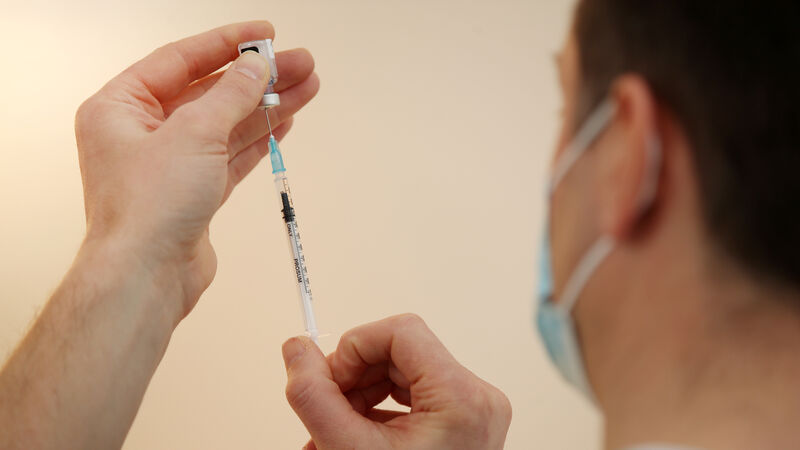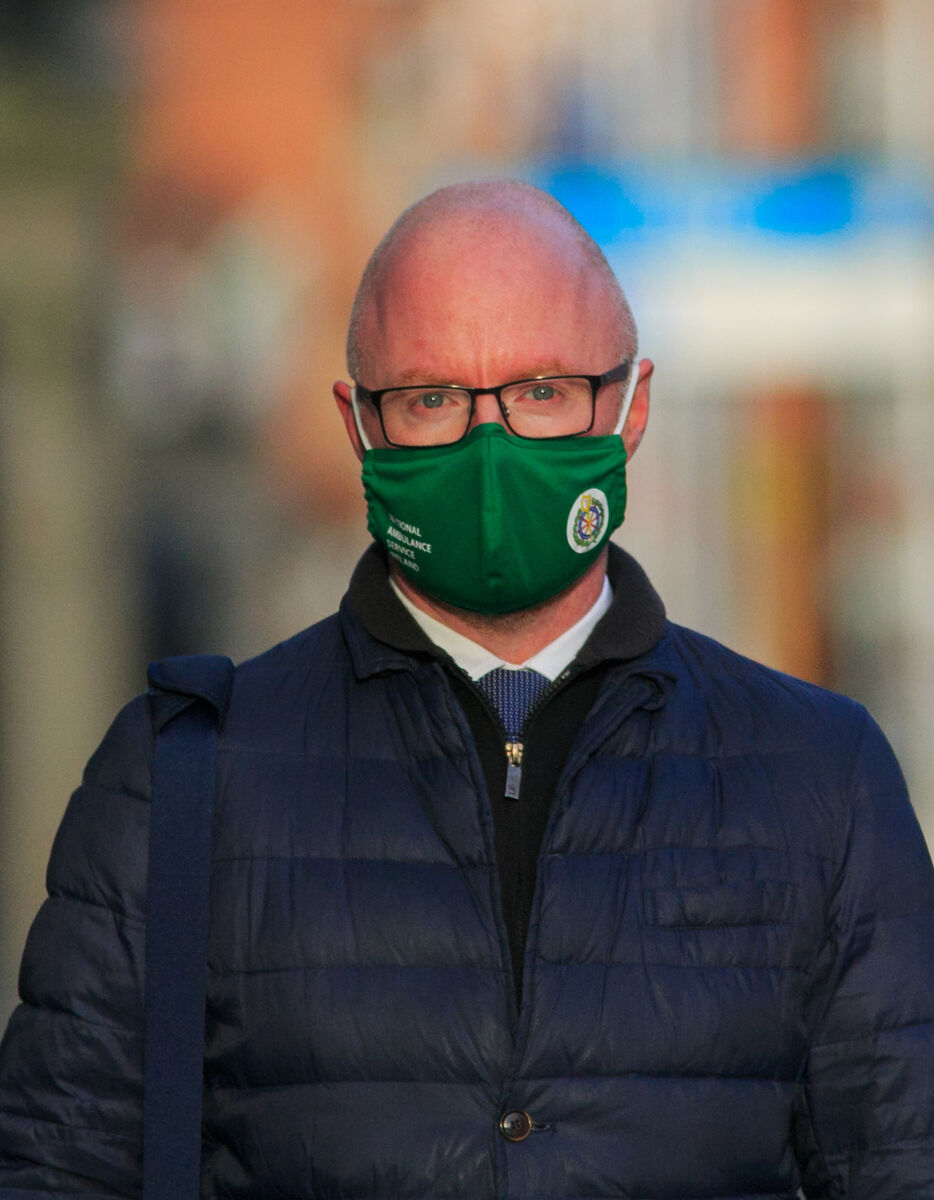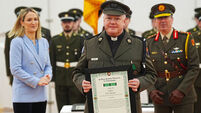Government's Covid vaccine programme dealt a further blow

Ireland’s delivery of the AstraZeneca Covid-19 vaccine could be smaller and later than expected, delivering a further blow to the Government's vaccine roll-out programme.
The manufacturing company has briefed the European Commission, confirming a reduction in the volumes of the vaccine that are expected for Europe from next month.
The vaccine is expected to get market authorisation from the European Medicines Agency on Friday and has been hailed as a 'game-changer' that would allow the Government to ramp up its vaccination programme next month to meet ambitious targets.
AstraZeneca is cheaper and easier to store than existing vaccines, removing some of the logistical issues associated with the current roll-out programme. Ireland has ordered 3.3 million doses of AstraZeneca but the latest development now casts doubt on how much supply will arrive in the first quarter of the year.
A Department of Health spokeswoman said: “AstraZeneca has briefed EU member states surrounding issues with the scheduling of deliveries post-market authorisation.”
HSE and health department officials will meet the company with other EU leaders next week in an urgent bid to solve the problem before the vaccine is approved.
A spokesman for the European Commission in Dublin said any changes to the shipment for Ireland will be communicated directly to the Minister for Health by the manufacturing company.
Referring to the Commission, he said: “We want to have vaccines as quickly as possible and in line with the agreements.”
In a media statement, AstraZeneca said: “Initial volumes will be lower than originally anticipated due to reduced yields at a manufacturing site within our European supply chain”.
They plan to supply “tens of millions of doses in February and March to the European Union”.
However, the reported the first shipment could drop to 40m doses instead of the expected 100m.
The delay comes as talks on a "two-island" strategy between Ireland and the UK on mandatory quarantining for air and sea travellers.

Taoiseach Micheál Martin said Health Minister Stephen Donnelly has been in contact with his UK counterpart Matt Hancock to discuss a shared strategy.
A spokesperson for Mr Donnelly said: "This includes the potential for new measures and also more robust enforcement of existing measures. This has become particularly relevant in the context of the emergence of the Covid-19 variants in the UK, South Africa and Brazil."
An inter-departmental group of civil servants have met to discuss measures to be brought to Monday's meeting of the three government party leaders.
Proposals may include mandatory 14-day quarantine for those without a negative PCR test upon arrival here or stricter rules around passenger locator forms and 14-day self-isolation upon arrival
Npeht first called for the introduction of mandatory quarantining in May and Deputy Chief Medical Officer, Dr Ronan Glynn said this remains the advice.
“Travel continues to play a role in the transmission of this disease in this country and will make it more difficult to maintain suppression over time. The regime that’s there at the moment will not stop all cases coming into this country,"
“Recently we asked for any elements of discretion as it applies to travel to be removed insofar as is possible, but we're not the experts on what's possible," Dr Glynn told the Oireachtas Health Committee.





